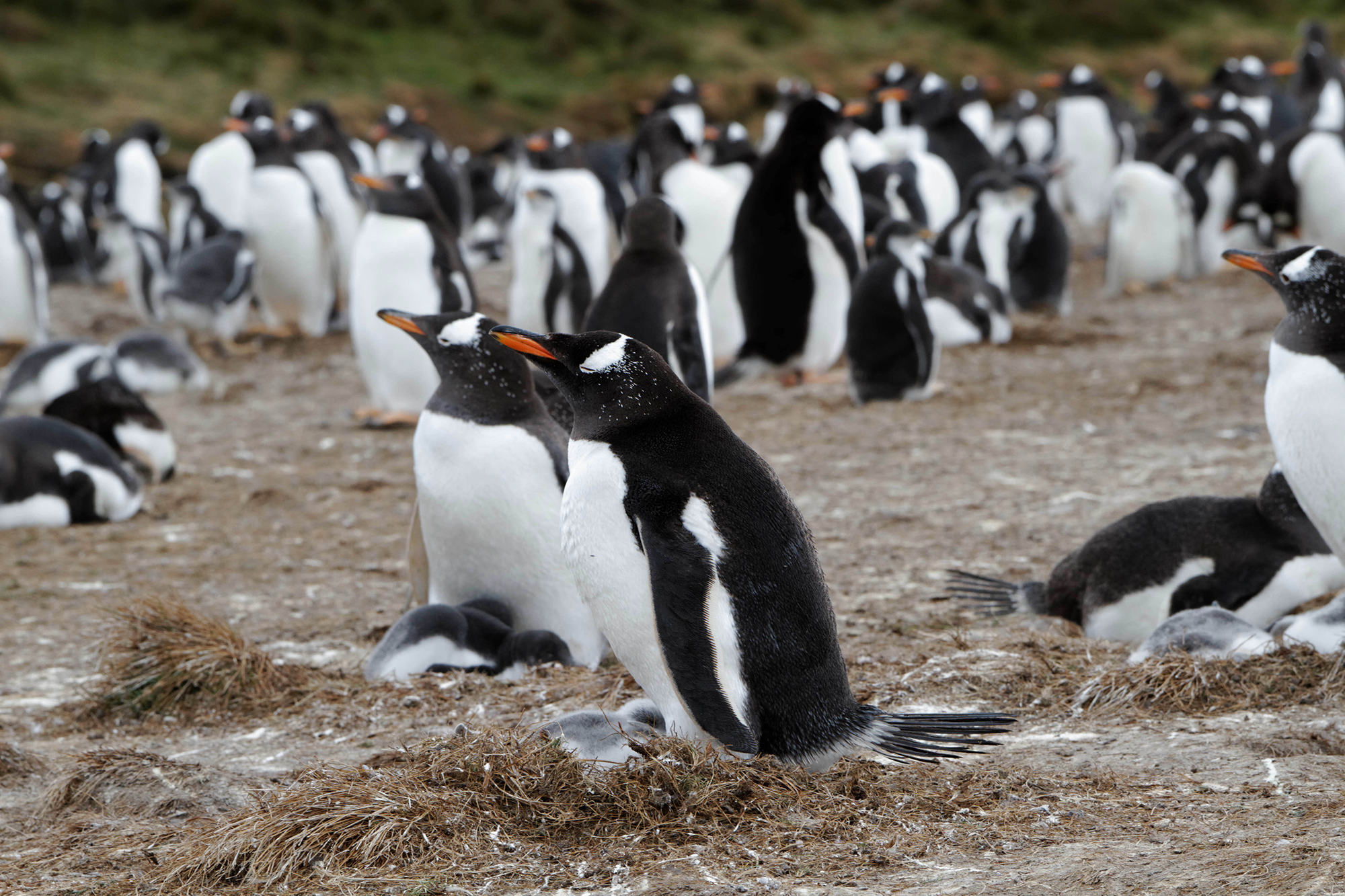As penguins dive, their location data takes flight
June 27, 2018

June 27, 2018

Data sent from penguins to space and back to UBC could help researchers determine why the species’ breeding population fluctuates so dramatically.
UBC researchers visited the South Atlantic in April to attach small transmitters to the backs of 66 Gentoo penguins from two colonies in the Falkland Islands. They are now watching to see where the birds forage for food as they fatten up for their spring breeding season beginning in October.
One-third of the world’s Gentoo penguin population lives in the Falklands. They use winter to build up their energy reserves so they can make it through rearing chicks in summer and moulting in fall.
The number of breeding pairs can fluctuate by as much as 50 per cent from year to year. Some researchers have attributed those wild swings to climate-related factors, but this team wanted to see if the penguins’ winter foraging behaviour would provide any clues.
Gentoo penguins are generally predictable in their movements. They hunt close to islands for krill, fish and squid, mostly during daylight hours and with frequent returns to shore.
“Researchers had noted that some penguins do longer, overnight trips, though there wasn’t a lot of information about it,” said Sarah Dier-McComb, a master’s student in UBC’s department of zoology. “With the results we’ve gotten already, we can confirm that, yes, some do take long multi-day overnight trips, foraging far from shore, probably going after preferred prey.”
“We’ll be very interested to see what effect those trips may have on energy reserves, and if those individual variations in behaviour can increase population resilience,” added Marie Auger-Méthé, an assistant professor in UBC’s Institute for the Oceans and Fisheries and department of statistics.
The transmitters are pinging location information to satellites for researchers to download, while small time-depth recorders provide data about the penguins’ dive behaviour and provide information on their foraging activity while out at sea.
The research team will cross-reference this information with environmental data such as water surface temperature, chlorophyll concentration and ocean currents. What they learn about the penguins’ winter foraging habits will help guide efforts to protect the birds’ habitat.
Dier-McComb and Auger-Méthé are working with Glenn Crossin of Dalhousie University. Their research is supported by an NSERC Discovery Grant, the Canada Foundation for Innovation, and the South Atlantic Environmental Research Institute. Dier-McComb received an NSERC Canada Graduate Scholarship. Crossin also received support from the Shackleton Scholarship Fund.
We honour xwməθkwəy̓ əm (Musqueam) on whose ancestral, unceded territory UBC Vancouver is situated. UBC Science is committed to building meaningful relationships with Indigenous peoples so we can advance Reconciliation and ensure traditional ways of knowing enrich our teaching and research.
Learn more: Musqueam First Nation